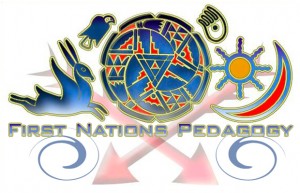I have been researching how best to support my aboriginal students in my classroom. Please find the enclosed list of resources.
Chen, Ai Yen et al. (1999) Cultural Issues in the Design of Technology-Enhanced Learning Systems. British Journal of Education. Vol 30 No 3 1999 217–230.
Towards Decolonizing the Pan-Canadian Science Framework
Glen S. Aikenhead
College of Education
University of Saskatchewan
Saskatoon, SK, S7N 0X1
Canada
Student Performance Data
and Research Tools to Ensure
Aboriginal Student Success
Heather Morin
Cross cultural science teaching: Rekindling traditions for aboriginal students. Glen S. Aikenhead in Curriculum as Cultural Practice (2006)
Curriculum as Cultural Practice: Post Colonial Imaginations. Edited by Yatta Kanu (2006)
 The
The  June Kaminski, the author of the
June Kaminski, the author of the